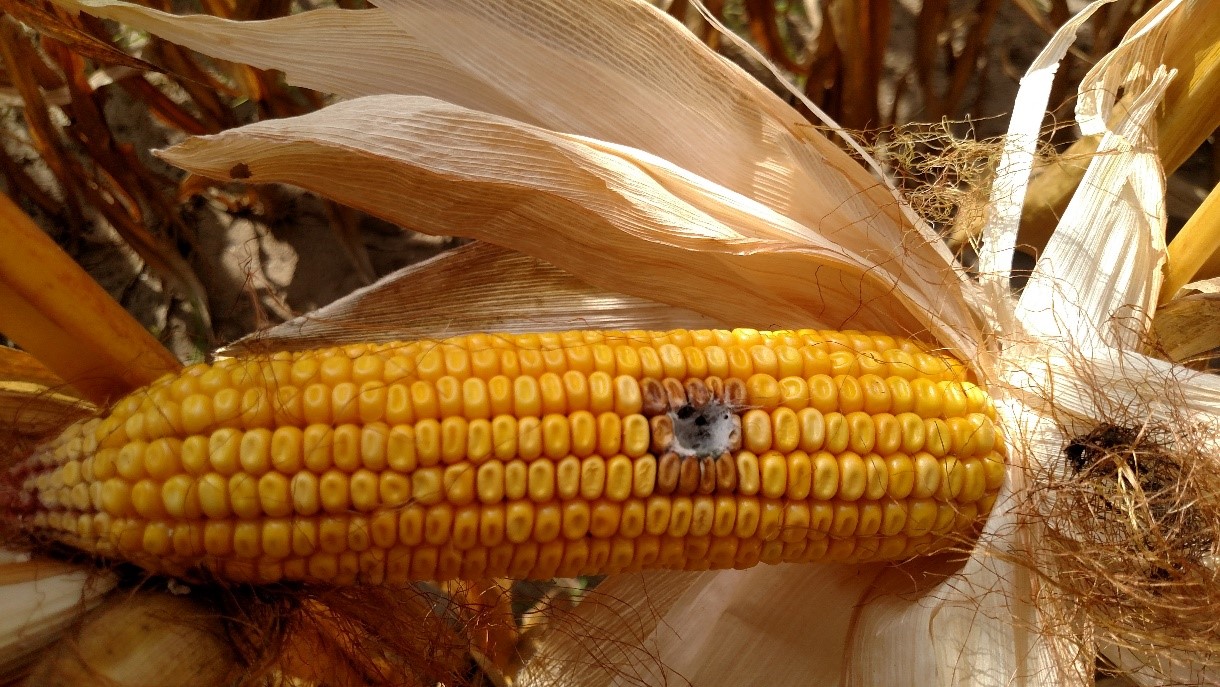Stored grain management training available for farmers and commercial applicators
Participants will learn on-farm grain storage tips and earn enough recertification credits to renew their private or commercial applicator fumigation standard without retesting.

This year was challenging for Michigan corn producers. Delayed planting, a cooler than normal August and widespread tar spot infections in west Michigan left substantial acreage of the state’s corn crop struggling to reach physiological maturity before the first killing frost. One of the more significant impacts from these situations was corn often having lower than normal test weights. Corn with lower test weight can cause longer term storage issues, especially if the grain is being held into the summer months.
Grain handling and drying operations can tend to crack lower test weight grain more easily. Cracked grain can lead to more issues with storage insects and molds within the bin. One way to combat the issue is to dry grain to lower than normal moisture levels (below 15). Another is to core the bin, which removes the fines from the center of the bin and distributes them on the top where they cause less issues with air flow within the bin. It also provides producers with the opportunity to more easily monitor for grain storage issues by inspecting grain at the top of the bin.
Fumigation is an important tool for managing insect populations in grain being held for longer term storage. Fumigation of grain requires private and commercial certified applicators to have the fumigation standard on their credential.
Michigan State University Extension will be holding a Stored Grain Fumigation and On-Farm Storage Training on Tuesday, Dec. 17, 2019, at the MSU Livestock Pavilion, 4301 Farm Lane, Lansing, MI 48910. This training will provide applicators with the ability to renew their certification standard without retaking the test. The program will run from 9 a.m. to 3 p.m. with lunch and educational materials provided. The registration fee for the meeting will be $65 per person.

We are fortunate to have staff members from Fumigation Service and Supply Company of Westfield, Indiana, provide an overview of materials that can be used to fumigate grain, as well as safety equipment and procedures, tarping and safety notifications to be able to use the materials correctly and safely.
MSU cropping systems agronomist Mani Singh or his graduate assistant Kaitlyn Fusilier will discuss the impacts ear molds and in-field insects, like western bean cutworm and corn earworm, can have on grain storage.
Purdue University stored product protection program specialists Klein Ileleji and Charles Woloshuk will provide updates on stored grain insect pests and molds, as well as the impacts grain quality (drying, cracking), aeration, air flow and grain temperature management have on grain storage success.
Pesticide registration specialist Brian Verhougstraete will round out the program with an update on pesticide registration topics at the Michigan Department of Agriculture and Resource Development.
To register or view the program agenda, visit Stored Grain Management Training for Farmers/Commercial Applicators.



 Print
Print Email
Email